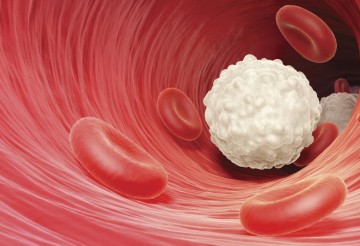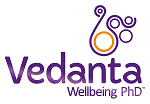The effects of stress on the immune responses result in alterations in the number of immune cells and cytokine dysregulation. Various stress management strategies such as meditation, yoga, hypnosis, and muscle relaxation have been shown to reduce the psychological and physiological effects of stress in cancers and HIV infection.
The ability to proactively handle stress in everyday life could alleviate the constant activation of the endocrine system, which in turn, increases the effectiveness of the immune system. Psycho-immunological studies have used a number of diverse strategies including hypnosis, relaxation, exercise, classic conditioning, self-disclosure, and exposure to phobic stressor to enhance perceived coping and self-efficacy.
of the immune system. Psycho-immunological studies have used a number of diverse strategies including hypnosis, relaxation, exercise, classic conditioning, self-disclosure, and exposure to phobic stressor to enhance perceived coping and self-efficacy.
In ancient times, China and India developed methods of exercise with exceptional healing effects. Qi Gong, T’ai Chi and yoga can all be described as meditative exercises and all involve relaxation and concentration, a focus on the breath, and gradual and purposeful movement. Yoga is an ancient Indian scientific method for physical, mental, and spiritual development. The word yoga is derived from the Sanskrit root, yug, meaning to bind, join. This reflection of the union of the body, mind, and spirit is what differentiates yoga from general exercise programs. The most commonly performed practices of hatha yoga are physical postures (asanas), breathing exercises (pranayama), and meditation (dhyana). Asanas are physical postures which stretch and strengthen different parts of the body, massaging and bringing fresh blood to the internal organs while rejevunating the nervous system and lubricating the joints, muscles, and ligaments. Each asana is purported to have different effects. Some are stimulatory to the nervous and circulatory systems, some develop coordination and concentration, while others have a calming effect on the body. Some postures, such as the corpse pose (shavasana), are used for elongated periods of relaxation. Pranayama consists of a variety of techniques for the regulation of breathing, usually by encouraging it to become slower, more regular and more refined.
The ultimate aim of yoga is to prepare the body to achieve tranquility of the mind. Yoga has been recommended and studied in its relationship to stress, although the studies are scientifically less replicable. It has been shown to create a sense of wellbeing, feeling of relaxation, improved concentration, self-confidence, improved efficiency, good interpersonal relationships, increased attentiveness, lowered irritability, and an optimistic outlook in life. Nonetheless, several researchers claim highly beneficial results from the practice of yoga in alleviating stress and its effects. Because it fosters self-awareness, yoga is a promising approach for dealing with the stress response. Even the Western world has now accepted yoga as a complementary therapy to assist cancer survivors in managing symptoms such as depression, anxiety, insomnia, pain, and fatigue.
Yoga poses that twist and compress organs, help massage and rejuvenate immune organs and channels. The practice of yoga also generates balanced energy- vital energy required by the immune system. Yogic practices probably inhibit the activity of the paraventricular nuclei of the hypothalamus, which in turn affects the anterior pituitary gland to produce less ACTH. The decrease in ACTH decreases the synthesis of cortisol from the adrenal glands. The decrease in cortisol levels with yoga has been observed in various studies. Qi Gong training, a Chinese energy system that combines meditative techniques with other practices, was associated with an elevation in CD4 T cells and a higher CD4/CD8 cell ratio in a group of healthy practitioners as compared to healthy controls. Qi Gong training also tends to decrease anxiety and plasma levels of ACTH, cortisol, and aldosterone. Cortisol also tends to activate phenylethanolamine-N -methyl transferase (PNMT). Consequent to sympathetic inhibition and a decrease in PNMT, catecholamine formation decreases. The decreased levels of corticosteroids and catecholamines are known to decrease stress responses.
Although it is not yet clear as to what extent these positive immunological changes translate into concrete improvements in relevant aspects of health (alterations in the incidence, severity, or duration of infectious or malignant disease), the preliminary evidence is promising. Authors thus conclude that stress tends to have a negative impact on the immune system and makes a person more vulnerable to diseases. Managing stress, especially chronic or long-term stress (even if it is not intense), by practising various relaxation techniques, may help people overcome other co-morbidities associated with diseases and lead a better quality of life even during periods of stress.
Source: Sarika Arora, Jayashree Bhattacharjee









